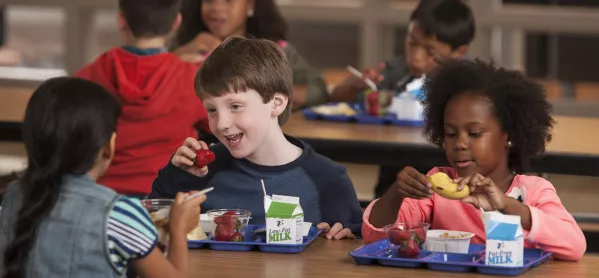At a time when schools are already facing swingeing cuts and critical funding decisions, I had high hopes that Labour would move on from challenging grammar and free schools to instead push the agenda of increased school funding.
Sadly, the latest developments seem to be rooted more in grabbing headlines and distracting from accusations of anti-Semitism, than in any well-thought-through policy ideas. The proposal to provide free school meals to all primary pupils might tick boxes for Jeremy Corbyn’s Islington clique, but the idea is really far from progressive.
While I have no complaints about the proposed VAT increase (though I do question the figures involved), I genuinely struggle with the basic justification that Labour is citing for the policy, namely that it “would benefit the educational attainment and health of all children”.
The evidence that a universal meals policy would, on its own, improve attainment, is questionable; the evidence that it would improve health is totally non-existent. But the presumption that the policy somehow benefits all children is what really misses the point. Corbyn’s policy would only apply to key stage 1 and key stage 2 pupils. In saying “no child in the UK should go hungry at school”, you presume that primary-aged children currently go hungry at lunch (they don’t) and that secondary pupils, who won’t be affected by the policy, don’t go hungry (they do).
This is a policy that prioritises pupils based on their age, rather than whether they actually need the support. It is a plan to feed the children of millionaires, while children living in food poverty get nothing new. I thought the world had moved on from using the concept of universality to target support towards those in need. This policy is a retrograde step in Labour’s thinking and, to my view, is neither equitable nor fair.
Money well-spent?
Importantly, the policy also misses another significant point. If a Labour government can generate billions to spend on education from applying VAT to independent school fees, surely that money would be better spent on more targeted, evidence-based interventions that are known to make a real difference to our children.
Of course, there is no magic money tree; money in education is, and will continue to be, constrained. So, it comes down to priorities. Feeding KS2 means continued cuts to staffing - it’s as simple as that. This is already happening in KS1, where schools subsidise the Universal Infant Free School Meal (UIFSM) policy.
This new incarnation is a shambles of a policy based on the same misconceptions and desire for good headlines that drove the Liberal Democrats to introduce the UIFSM policy in the first place. The end result will be the same; we will still have poor kids going hungry and schools that are starved of funds.
If a Labour government is committed to addressing school food, it should look to expand and automate free school meal (FSM) entitlement, introduce free breakfast clubs and do far more to address the under-reported issue of holiday hunger by feeding FSM pupils when schools break up. These things would be a fraction of the cost of universal FSM, but would do far more good
As a final, simple test of the efficacy of the policy, consider this. If you were to say to a teacher, “here is £14,000 to spend however you want to better support your pupils,” would any of them really suggest giving it all away to a catering firm?
Andy is a blogger and free school meals campaigner in Dorset. He blogs at Not Very Jolley.

